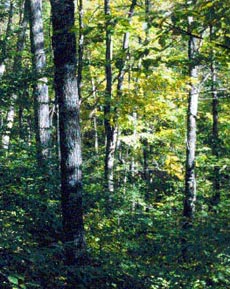Ecology
Biol 371/371L
I teach both Ecology Lecture and Ecology laboratory. Go here to see an example lecture syllabus and here to see an example lab syllabus.
 Ecology is the scientific study of the interactions among organisms and their environment. In lecture we spend time discussing science as a way on knowing, natural selection as a mechanism of evolutionary change, organism adaptation, speciation, and natural selection. We also spend time examining both the abiotic (nonliving) and biotic (living) components of an organism's environment and explore how these factors influence organism adaptation, life history strategy, distribution and abundance. Significant time is devoted to understanding population ecology, inter- and intra-specific competition, effects of predation, community structure, landscape ecology and ecosystems. The (mostly negative) influence of humans on organisms and ecological systems is discussed throughout the course. Biology 141 and 142 (General Biology) are prerequisites for this course.
Ecology is the scientific study of the interactions among organisms and their environment. In lecture we spend time discussing science as a way on knowing, natural selection as a mechanism of evolutionary change, organism adaptation, speciation, and natural selection. We also spend time examining both the abiotic (nonliving) and biotic (living) components of an organism's environment and explore how these factors influence organism adaptation, life history strategy, distribution and abundance. Significant time is devoted to understanding population ecology, inter- and intra-specific competition, effects of predation, community structure, landscape ecology and ecosystems. The (mostly negative) influence of humans on organisms and ecological systems is discussed throughout the course. Biology 141 and 142 (General Biology) are prerequisites for this course.
Ecology lab consists of various exercises and ecological techniques designed to reinforce ecological principles, to demonstrate use of the scientific method in the study of ecology, and to provide students with an introduction to field procedures commonly used by ecologists. We take seven field trips to study insect population ecology and habitat selection (2 trips), lake ecology (2 trips), forest community ecology (1 trip), amphibian habitat selection (1 trip), and stream ecology (1 trip). Biology 141 and 142 (General Biology) are prerequisites for this course.
Dr. Robert J. Smith
Contact Us:
- Dr. Robert J. Smith
- Department of Biology
- Loyola Science Center 252
- Scranton, PA 18510
- The University of Scranton
- Phone: (570) 941-6581
- robert.smith@scranton.edu